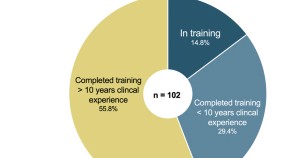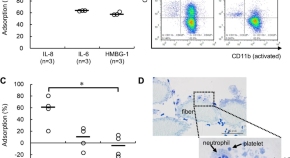Current clinical practice in using adjunctive extracorporeal blood purification in sepsis and septic shock: results from the ESICM “EXPLORATION” survey
Authors (first, second and last of 5)

Collection
Klaus Stahl is a nephrologist,gastroenterologist and intensivist at Hannover Medical School in Germany. He is interested in clinical and translational research in septic shock,ARDS and liver failure. A special focus of his research lies on extracorporeal treatment modalities such as therapeutic plasma exchange in septic shock and ECMO in ARDS. As PI of the EXCHANGE study program,he has explored use of therapeutic plasma exchange in refractory septic shock in both clinical trials as well as translational experiments. As a co-founder of the BonHanZA study group he is excited to tackle a broad range of novel questions in critical care medicine.







